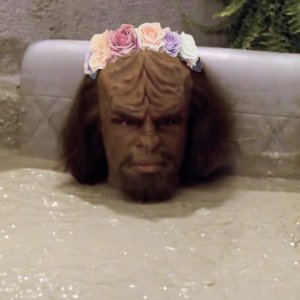This review may contain spoilers
Challenging but worth it
I didn't want to get too detailed, but okay let me be real I have Thoughts.
The narrative explores the themes of guilt and regret and asks each character to look at their life and choices through the lens of the mysterious moments, the four minutes, between life and death.
What's challenging and provocative, I think, about this series is the non-linear narrative, which appears, at first, very tangled and confusing. However, this series unravels those tangled webs of time and memory and provides us with, in actuality, a very simple story. The non-linear approach effectively shapes that simple story about the follies and sins of its characters into a rumination on the unknowable mysteries of consciousness, memory, and imagination. Using memory as a vector, the series takes moments from its characters' past, connects it to their present, and transposes them into the "4 Minutes" dreamworld: the intangible, fourth-dimensional liminal space between life and death. This space crosses the boundaries of consciousness and imagination itself, with characters reliving past moments, making changes to their own memories and even, seemingly communicating with each other through shared imagination.
One character quantifies this into his "4 Minutes" theory, exploring the idea that these moments between life and death can reveal a person's true character, or at least who they want to be. At the same time, the Real World looms over, telling us that no one can change the past, letting each regret hang over like an executioner's axe. As the series progresses, we're painfully aware that Great couldn't actually do anything to change the events that preceded his near death experience, that his experience in the 4 Minutes was just his regret and imagination at work.
Still, though this is the 'truth' revealed about 4 or 5 episodes in, we're still left with many unknowns about these 4 minutes. Indeed, in a very fitting ending, we're left questioning some aspects of what was real and what was in these 'dreams'. If it was simply "imagination", then why did it seem as though characters learned things they didn't know before? Or seemed as though they were having a shared experience within the 4 minutes?
The series never really aims to answer these questions and so doesn't, because the real heart of the story isn't to give a definitive answer to these mysteries but rather to answer the question of whether, given the chance, a person would change themselves for the better. And so, a change does happen; perhaps Great couldn't change the past, but he could and does change his future, which is, ultimately, what saves his life in the end.
The narrative explores the themes of guilt and regret and asks each character to look at their life and choices through the lens of the mysterious moments, the four minutes, between life and death.
What's challenging and provocative, I think, about this series is the non-linear narrative, which appears, at first, very tangled and confusing. However, this series unravels those tangled webs of time and memory and provides us with, in actuality, a very simple story. The non-linear approach effectively shapes that simple story about the follies and sins of its characters into a rumination on the unknowable mysteries of consciousness, memory, and imagination. Using memory as a vector, the series takes moments from its characters' past, connects it to their present, and transposes them into the "4 Minutes" dreamworld: the intangible, fourth-dimensional liminal space between life and death. This space crosses the boundaries of consciousness and imagination itself, with characters reliving past moments, making changes to their own memories and even, seemingly communicating with each other through shared imagination.
One character quantifies this into his "4 Minutes" theory, exploring the idea that these moments between life and death can reveal a person's true character, or at least who they want to be. At the same time, the Real World looms over, telling us that no one can change the past, letting each regret hang over like an executioner's axe. As the series progresses, we're painfully aware that Great couldn't actually do anything to change the events that preceded his near death experience, that his experience in the 4 Minutes was just his regret and imagination at work.
Still, though this is the 'truth' revealed about 4 or 5 episodes in, we're still left with many unknowns about these 4 minutes. Indeed, in a very fitting ending, we're left questioning some aspects of what was real and what was in these 'dreams'. If it was simply "imagination", then why did it seem as though characters learned things they didn't know before? Or seemed as though they were having a shared experience within the 4 minutes?
The series never really aims to answer these questions and so doesn't, because the real heart of the story isn't to give a definitive answer to these mysteries but rather to answer the question of whether, given the chance, a person would change themselves for the better. And so, a change does happen; perhaps Great couldn't change the past, but he could and does change his future, which is, ultimately, what saves his life in the end.
Was this review helpful to you?





